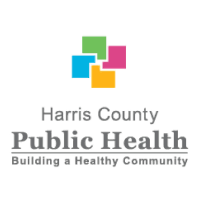
November is Prematurity Awareness Month
HOUSTON – Premature birth is a global concern affecting millions of families each year. November is Prematurity Awareness Month—an important time to raise awareness of the maternal and infant health crisis of preterm birth and lifesaving donations. This month also marks World Prematurity Day, observed on November 17. Harris County Public Health (HCPH) is joining the efforts by raising awareness about this critical issue affecting families across Harris County.
The Centers for Disease Control and Prevention (CDC) states that in 2022, preterm birth affected about 1 of every 10 infants born in the United States. A preterm birth occurs when a baby is born before 37 weeks of a birthing parent’s pregnancy; full-term pregnancies typically last around 40 weeks. Infants weighing less than 5 pounds and 8 ounces (2,500 grams) at birth are classified as having a low birthweight, which can happen even if the baby is born at full term. Premature babies are more likely to have low birthweight and face health challenges due to their limited time for growth and development in the womb.
According to the HCPH’s Maternal and Infant Health Report, preterm birth and low birthweight are among the leading causes of infant mortality in non-Hispanic Black infants, whereas these causes rank second in non-Hispanic White and Hispanic infants in Harris County. Non-Hispanic Black women had the highest preterm birth rate of 16.1% between 2019 and 2021 as compared to non-Hispanic White (10.1%) and Hispanic (11.3%) women. Between 2016 and 2021, non-Hispanic Black infants were about two times (14.1% vs. 6.9%) as likely as non-Hispanic White infants and 1.8 times (14.1% vs. 7.8%) as likely as Hispanic infants to be born with low birthweight.
Babies grow and develop during pregnancy, especially in the final weeks. Babies are more likely to die or have long-term health problems if they are born too early, especially before 32 weeks. The CDC states that in 2021, preterm birth and low birthweight accounted for about 14.8% of infant deaths (deaths before 1 year of age). Babies who survive may have:
- Breathing problems
- Feeding difficulties
- Cerebral palsy
- Developmental delay
- Vision problems
- Hearing problems
Preterm births may also take an emotional toll and be a financial burden for families.
In most cases, preterm labor happens without warning, and the cause is unknown. Like regular labor, signs of early labor are:
- Contractions every 10 minutes or more often
- Change in vaginal discharge or more vaginal discharge than usual
- Pelvic pressure or the feeling that the baby is pushing down
- Low, dull backache
- Cramps that feel like a menstrual period
- Abdominal cramps with or without diarrhea
Preventing premature birth is difficult since the causes can be complicated and not always well understood. However, pregnant women can take these important steps to help reduce their risk of preterm birth and improve their general health:
- Maintain a healthy weight and lifestyle
- Avoid smoking and using alcohol
- Avoid drugs and/or abusing prescription medications
- Get prenatal care as soon as you think you may be pregnant and throughout your pregnancy
- Seek medical attention for any warning signs or symptoms of preterm labor
- Talk with your doctor or other healthcare providers about what interventions and monitoring are available if you had a previous preterm birth
- Wait at least 18 months between pregnancies
HCPH has established the Maternal and Child Health Program (MCHP) to provide better care for birthing persons and their children. The program aims to reduce health risks and empower families to lay the foundation for a healthy family. MCHP offers one-on-one in-home support for up to three years to ensure a healthy birth and family growth journey. Participants can also improve their well-being and self-sufficiency by enrolling in ACCESS (Accessing Coordinated Care and Empowering Self Sufficiency) Harris County, which provides a holistic care-coordination approach to eligible community members.
For more information about the MCHP, visit the HCPH’s Maternal & Child Health Program webpage or call (713) 368- MOMS (6667). For more information about Prematurity Awareness Month and for donating, visit the March of Dimes website.

